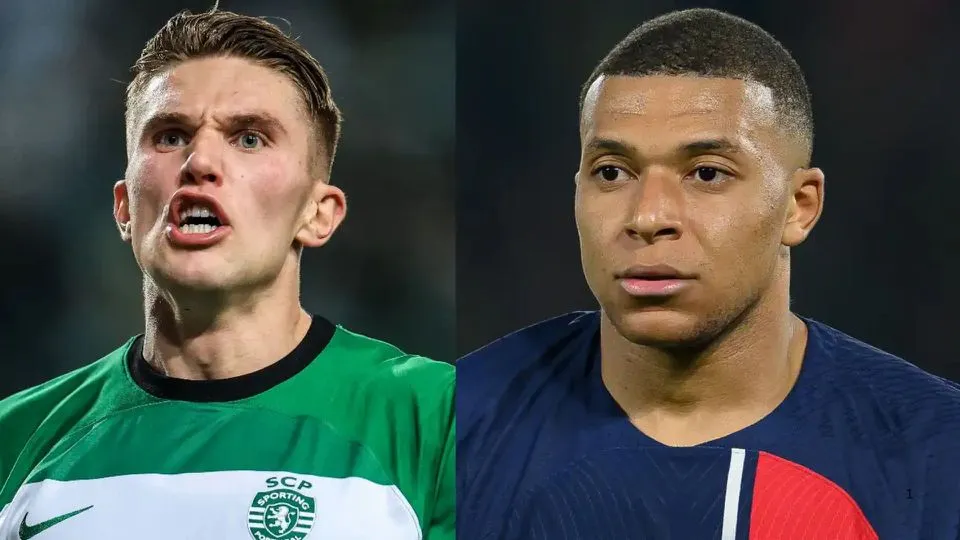In European football, few individual awards spark as much conversation as the European Golden Shoe. This season, Kylian Mbappe’s triumph has been anything but straightforward, stirring debate, admiration, and a fair share of controversy. The French superstar clinched the prize despite being outscored by Sporting CP’s Viktor Gyokeres, a dramatic outcome that reveals as much about football’s complexity as it does about the players themselves.
A season of breathtaking numbers and heated debate
On the face of it, Viktor Gyokeres was the runaway favorite for the Golden Shoe. The Swedish striker’s campaign in Portugal was nothing short of extraordinary — 39 league goals in just 33 appearances, leading Sporting CP to a championship and dazzling fans across the continent. Yet, in a result that left many scratching their heads, it was Mbappe holding the trophy aloft in June, his 31 La Liga goals and the UEFA point system tipping the balance in his favor.
The science behind the accolade
To understand this storyline, we need to look beyond simple goal tallies. The European Golden Shoe does not go to the player with the most goals, but to the one who accumulates the most points — and UEFA’s system weights those points by the perceived strength of each domestic league. In the top five leagues — La Liga, Premier League, Serie A, Bundesliga, Ligue 1 — each goal is multiplied by two. In leagues ranked sixth through twenty-second, such as Portugal’s Primeira Liga, each goal is multiplied by 1.5.
This meant that, for all of Gyokeres’s brilliance, his 39 goals in Portugal translated to 58.5 points, while Mbappe’s 31 in Spain amounted to 62 — more than enough to secure the award. The difference was not one of output, but of context — UEFA considers scoring in Spain more difficult than in Portugal, rewarding the Frenchman’s efficiency in one of Europe’s most competitive leagues.
Mbappe’s historic first season in Madrid
Mbappe’s move to Real Madrid presented both immense opportunity and daunting pressure. Taking the iconic white kit after leaving Paris, he was expected to break records — and, impressively, he did not disappoint. With 43 goals and five assists in all competitions, and 31 strikes propelling him to the Pichichi award as Spain’s top scorer, Mbappe achieved what even Cristiano Ronaldo could not in his first La Liga season: he became Real Madrid’s all-time highest single-season debutant scorer, surpassing Ivan Zamorano’s 1992/93 record.
Yet, football is rarely so kind in the collective sense. Madrid missed out on all major domestic and European silverware, their only trophy a Super Cup victory, and their Champions League run ending in the quarterfinals at the hands of Arsenal. Barcelona took both La Liga and Copa del Rey, leaving Mbappe’s individual brilliance to shine amid disappointment for the team.
| CASINO | BONUS | INFO | RATING | |
|---|---|---|---|---|
|
bonus
New players get 50 free spins and a Ksh 2500 freebet!
See 7 Bonuses
|
info
BK 0000665 PG 0000405 Good combination of online casino and betting platform |
|||
|
bonus
Exciting deposit bonuses and free spins await!
See 10 Bonuses
|
info
Curacao OGL/2024/507/0541 Wide Range of casino games |
|||
|
bonus
Daily 99 KES sports offer boosts your game!
See 3 Bonuses
|
info
BK 0000696 PG 0000392 Fast cashouts |
|||
|
bonus
Get 200% deposit bonus + 200 free spins on Veni Vidi Vici!
See 6 Bonuses
|
info
BK 0000562 PG 0000350 Large game selection, attractive bonuses, and top-notch security |
The system and its critics
The 2024/25 outcome has ignited fresh debate over the fairness of UEFA’s structure. Supporters argue the system reflects the reality that scoring against La Liga defenses is tougher than in Portugal, justifying the disparity. Critics, meanwhile, view it as an insult to the likes of Gyokeres, who could do no more than outscore everyone in the continent’s top flights — and still fall short.
Gyokeres, for his part, keeps perspective. Sporting fans lauded his leadership and his electric 54 goals in all competitions. Yet the arithmetic proved unyielding — it was not just about finding the net, but where and when. “Outrageously, 39 of his strikes came in the Primeira Liga as he figureheaded his side’s title win,” one summary noted, perfectly capturing the drama and frustration felt by many.
Mbappe’s physical and mental battle beyond the pitch
Footballers are more than their statistics. For Mbappe, the weeks following his historic achievement have been shadowed by health concerns. Shortly after arriving in the United States for the FIFA Club World Cup, he was hospitalized with acute gastroenteritis — a harsh illness causing vomiting, dehydration, and significant weight loss.
Recent images from Real Madrid’s training camp show a visibly leaner Mbappe. Official estimates put his weight loss at 4–5 kilos, a stark transformation for an athlete whose physicality is central to his playing style. While he has resumed training and left the hospital, the club is supervising his gradual reintegration, and his participation in forthcoming matches remains uncertain.
Fans and pundits have weighed in on the change. Some wonder if his newfound agility will make him even more lethal, while others worry his reduced bulk could blunt his edge in physical duels. The journey back to peak form will be watched as closely as his exploits in front of goal.
Legacy and records in the spotlight
For all the controversy, Mbappe’s achievement cements him among the game’s greats. He is now the first player in history to win the European Golden Shoe, World Cup Golden Boot, and Champions League Golden Boot — a unique trifecta that underscores both his individual brilliance and consistency across the world’s toughest arenas.
Beyond Mbappe and Gyokeres, the season’s leading scorers list reads like a who’s who of European strikers: Mohamed Salah (Premier League Golden Boot, 29 goals, 58 points), Robert Lewandowski (27 goals, 54 points), and Harry Kane (26 goals, 52 points). Each carried their teams, but only Mbappe stood atop the point pyramid.










